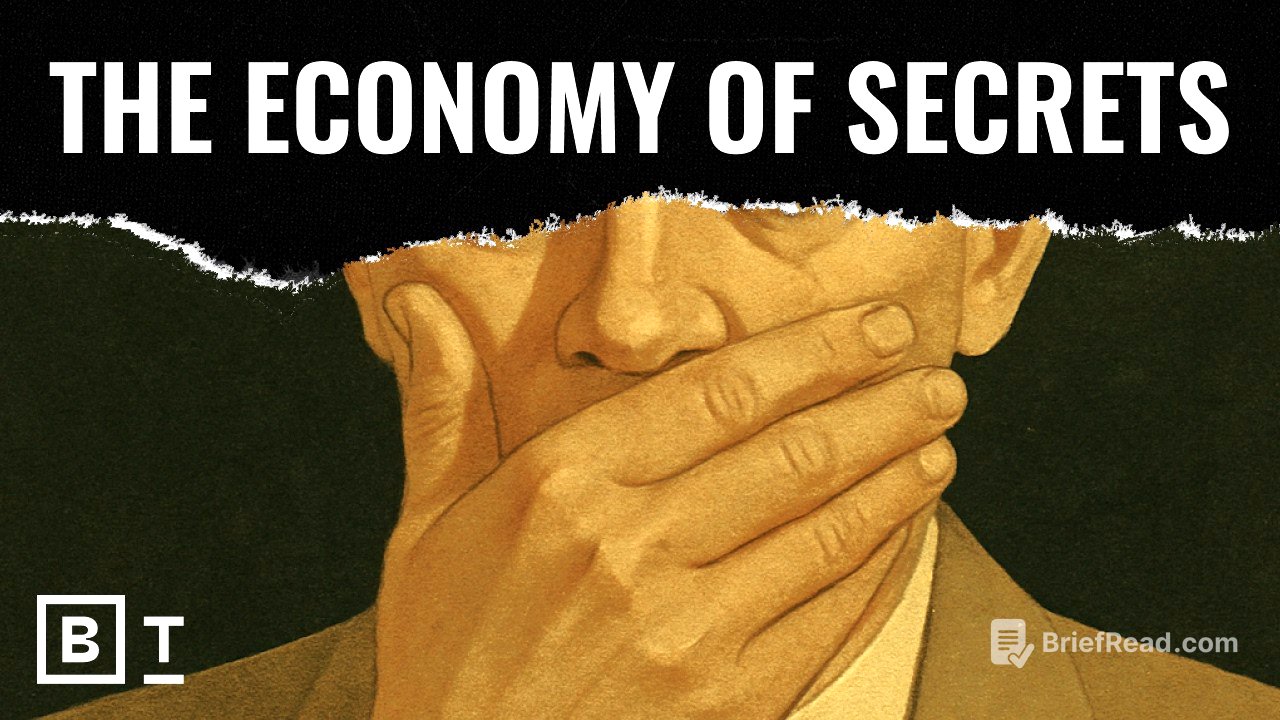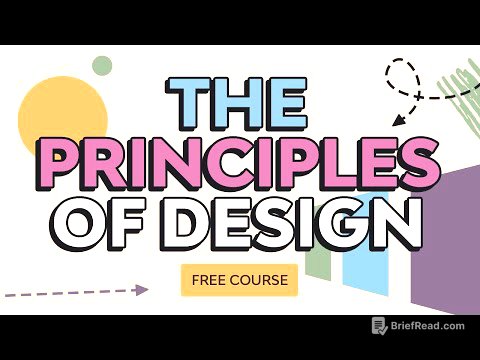TLDR;
This video explores the concept of the "economy of secrets," arguing that secrets are a form of currency that can be leveraged for personal and professional gain. It discusses the construct of fairness, different types of secrets, and how the CIA classifies them. The video also covers strategies for keeping and eliciting secrets, emphasizing the importance of information superiority and using open-ended questions. Ultimately, it advocates for accepting the reality that everyone holds secrets and learning to navigate this landscape to achieve success.
- Secrets are a form of currency that can be leveraged for personal and professional gain.
- Fairness is a construct used to control society, while those seeking an edge exploit hidden information.
- The CIA classifies secrets based on the potential damage their disclosure could cause.
- Keeping secrets involves limiting talk and asking questions, while eliciting them requires open-ended inquiries.
- Trading secrets with a short "shelf life" for those with a longer one can provide a competitive advantage.
The economy of secrets [0:00]
The speaker introduces the concept of the "economy of secrets," asserting that accepting the reality that everyone has secrets is crucial for a predictable and successful future. By acknowledging this, individuals can adopt practices to gain more secrets than they share, which is akin to gaining wealth, power, or leverage. The speaker contrasts living in a naive world where people are assumed to be honest with living in a factual world where everyone is recognized as keeping secrets.
The construct of fairness [1:00]
The speaker reflects on childhood lessons about fairness and how they contrast with the realities of the world. He explains that the CIA taught him that fairness is a construct used to create predictability in human behavior, enabling societal control. CIA officers, however, are trained to infiltrate societies and exploit hidden information. The world is constantly competing for power, information, and leverage, but it is masked by the idea of fairness to reduce competition. Letting go of the idea of fairness and accepting predictable behaviors and manipulation tactics can create favorable outcomes.
Leveraging secrets [3:30]
The speaker introduces the concept of the "economy of secrets," comparing it to basic economics where limited supply meets infinite demand. Secrets, whether personal, trade, or geopolitical, are always in demand. People selectively share or withhold secrets based on their perceived value and potential use. This creates a real pressure on the supply and demand within the economy of secrets.
Different types of secrets [5:04]
The speaker discusses the various types of secrets, including those kept due to wrongdoing, respect for privacy, or accidental acquisition. Each secret holds potential leverage, but their values differ. Understanding these distinctions is crucial, as not all secrets are equal in the leverage they provide.
CIA’s classification of secrets [6:01]
The speaker explains how the CIA classifies secrets into confidential, secret, and top secret levels, based on the potential damage their disclosure could cause to national security. Confidential secrets could potentially do damage, secret level secrets would cause damage, and top secret level secrets would cause grave damage. This rubric can be applied to personal, career, or business secrets to assess their importance. The secrets with more damaging outcomes are the ones to prioritize keeping and obtaining.
Information superiority [8:53]
The speaker defines intelligence as having information superiority, which means possessing the best and highest quantity of information compared to competitors. Sharing suspicions prematurely can be detrimental; instead, one should gather more information to confirm suspicions before revealing them.
Using open questions [10:18]
The speaker introduces the concept of elicitation, which involves obtaining information without revealing one's interest in it. A key tool for elicitation is asking open-ended questions that require more than a simple yes or no answer. Open questions prompt individuals to interpret the question through their own biases and beliefs, often leading them to share more information than intended. Understanding these biases and beliefs allows for crafting more targeted questions, digging deeper into the secrets people are trying to keep.









